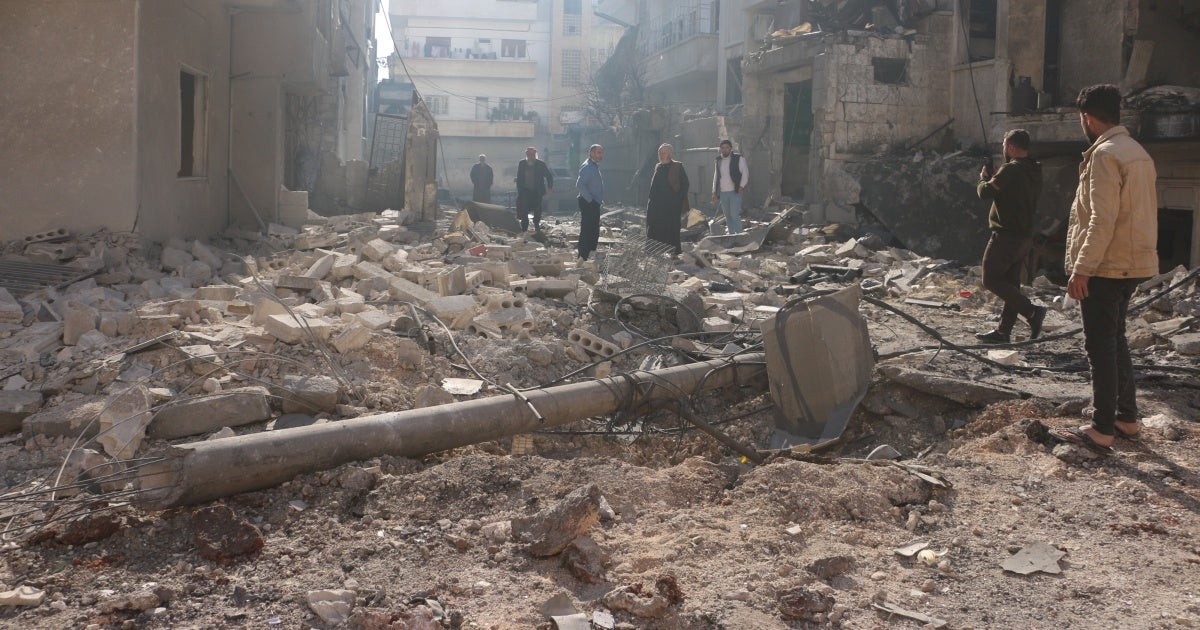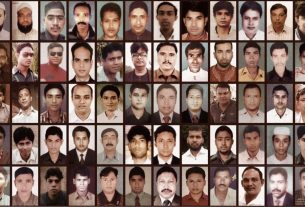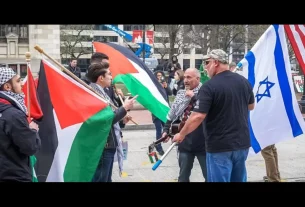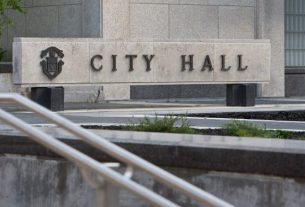(Beirut) – The outbreak of major hostilities in northern Syria beginning on November 27, 2024, raises concerns that civilians face a real risk of serious abuses at the hands of opposition armed groups and the Syrian government, Human Rights Watch said today. All parties to the conflict should abide by their obligations under international humanitarian and human rights law, including by only directing attacks against military objectives, taking all feasible precautions to avoid civilian casualties, and ensuring civilians can flee the fighting safely.
On November 27, Hay’at Tahrir al-Sham (HTS), an Islamist anti-government armed group that controls most of Idlib province, alongside factions of the Türkiye-backed Syrian National Army (SNA), led a new offensive in northern Syria, quickly seizing control of large swaths of territory, including Aleppo city and the western countryside of Aleppo. The Syrian government has vowed to mount a counteroffensive and has carried out airstrikes across Idlib and Aleppo governorates alongside Russian forces.
“Given the conduct of the Syrian government throughout the nearly 14-year conflict, concerns are mounting that it may again engage in brutal and unlawful tactics that have caused devastating and long-term harm to civilians,” said Adam Coogle, deputy Middle East director at Human Rights Watch. “Anti-government armed groups have promised restraint and to uphold humanitarian norms, but they will ultimately be judged by their conduct not their words.”
As of December 2, the anti-government groups were advancing south towards the major city of Hama. Territorial losses have also been reported in areas under the control of the United States-backed Kurdish-led Syrian Democratic Forces.
On November 30, the United Nations Office for the Coordination of Humanitarian Affairs (OCHA) described the situation in Aleppo as “rapidly deteriorating,” noting that the fighting had reportedly caused “massive” displacement in western Aleppo countryside and in Aleppo city. As of December 3, OCHA reported that attacks in Idlib and northern Aleppo, by both armed opposition groups and Syrian government forces, had killed 69 civilians, including 26 children and 11 women, and injured 228. By December 4, the Syrian Network for Human Rights recorded 149 civilian deaths. The UN said on December 3 that tens of thousands of Syrians have been displaced since the escalation of hostilities began on November 27.
On December 1 and 2, it reported that in the more than 50 airstrikes that struck Idlib, at least four health facilities, four school facilities, two displacement camps, and a water station were impacted. Another OCHA update on December 2 reported that over 48,000 people had been newly displaced with severe disruptions to services and aid delivery.
The Syrian Civil Defense, known as the White Helmets, said government airstrikes that struck the entrance of the University Hospital in Aleppo on December 1 killed at least 12 people and wounded 23, and that airstrikes in Idlib on December 1 killed 8 people, including a woman and two children, and wounded 63.
Formed in January 2017, HTS is a coalition of Islamist Sunni anti-government armed groups, led by the group previously known as Jabhat Fateh al-Sham or Jabhat al-Nusra, which was an al-Qaeda affiliate. In establishing the coalition, the group’s leader, Abu Mohammed al-Jolani, publicly broke with al-Qaeda. In March 2017, the group claimed a twin bombing in Damascus that killed at least 40 people, the majority of them Iraqi Shia pilgrims. The US and Türkiye have long designated the group a foreign terrorist organization affiliated with al-Qaeda, while the UN sanctioned it in 2018.
On November 29, as HTS-led forces were entering Aleppo city, al-Jolani issued a statement calling on fighters “to show mercy, kindness, and gentleness to our people in the city of Aleppo.” The statement said anyone who refrained from hostilities or laid down arms would be “safe” and vowed to restore security in the city as soon as possible.
The opposition groups’ records on detentions raises serious concerns about the safety and wellbeing of those affiliated with the Syrian government or Syrian soldiers captured during the military offensive. The groups also have well-documented records of mistreatment of religious and ethnic minorities and women in areas under their control.
In 2019, Human Rights Watch documented that HTS had arbitrarily arrested scores of residents in areas under their control in Idlib, Hama, and Aleppo governorates, apparently because of their peaceful work documenting abuses or protesting the group’s rule. Six former detainees told Human Rights Watch that they were tortured while in HTS custody.
In February 2024, large protests led by civilian activists erupted in HTS-controlled areas, demanding detainee releases, governance reforms, and the removal of al-Jolani. According to the UN-mandated Syria Commission of Inquiry’s September 2024 report, protests, which continued sporadically for months thereafter, followed arrest campaigns targeting HTS members, rival groups, political parties, and civilians, including women and children as young as 7. It reported that detainees were subjected to torture and ill-treatment.
The Türkiye-backed SNA also has a poor human rights record. Human Rights Watch reported in 2024 how SNA factions and affiliated groups have arbitrarily arrested and detained, forcibly disappeared, tortured and otherwise ill-treated, and subjected to unfair military trials scores of people, especially Kurds, in areas under their control with impunity.
HTS and the SNA should refrain from attacks that target civilians and civilian objects as well as indiscriminate attacks, take all feasible precautions to avoid civilian casualties, and ensure that civilians can flee the fighting safely. They should take steps to monitor and prevent fighters from mistreating detainees or engaging in revenge violence or extrajudicial killings; ensure that fighters do not harass, arbitrarily arrest, or mistreat residents who choose to remain in newly captured areas; and hold all who engage in violations accountable.
Türkiye should take immediate steps to halt human rights violations and potential war crimes committed by Syrian armed groups it supports and ensure that everyone under its control adheres to international human rights law and humanitarian law.
The Syrian government is responsible for crimes against humanity and war crimes over the past 13 years of hostilities, including while fighting HTS. In 2020, Human Rights Watch found that Syrian and Russian armed forces’ repeated attacks on civilian infrastructure may amount to crimes against humanity. In 2023, Human Rights Watch also documented the Syrian-Russian military alliance’s use of cluster munitions and incendiary weapons on Idlib governorate. The Syrian-Russian military alliance should refrain from indiscriminate attacks as well as attacks that target civilians and civilian objects.
Since 2011, Human Rights Watch and others have extensively documented the arbitrary detention and torture of tens of thousands of people by Syrian government forces in what amount to crimes against humanity. Syria is facing scrutiny at the International Court of Justice in a case brought by Canada and the Netherlands alleging that it is violating the international Convention Against Torture.
“The bloody record of atrocities by all parties to the conflict in Syria is bound to persist until leaders go beyond words and support accountability efforts,” Coogle said. “Without credible justice, there will be no end in sight to the suffering Syrians have endured, no matter who controls the land.”



